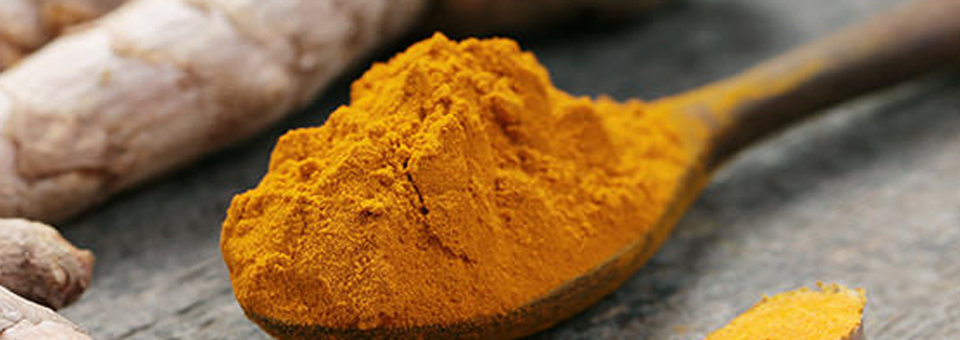For a long time, curcumin was the most popular supplement in the country.
Millions of Americans turned to this root for its incredible health benefits…only to stop using it because it just wasn’t working.
But curcumin’s effects on your health have been proven in hundreds of studies. Some of these benefits confirm that curcumin:
- Reverses memory loss from late-stage Alzheimer’s in just three months1
- Reduces arthritis joint pain by 60%…and joint swelling by 73%2
- Eliminates symptoms of hard-to-treat depression3
- Halts the onset of type-2 diabetes with 100% success4
- Prevents DNA damage that can lead to cancer5
You see, the problem isn’t the spice itself. The fault lies with the supplements—more on this in a moment.
First, I want to share the latest research on how curcumin can extend your “health span” – the number of years you feel physically energized and ready to take on the world.
New research has revealed the aging process is controlled primarily by two parts of your cell biology:
- Your mitochondria are the microscopic energy powerhouses in each cell.
- And your telomeres, the tiny caps at the ends of your chromosomes, are found in the nucleus of your cells.
Studies show that inflammation from free radical attacks is at the root of mitochondria dysfunction. When these tiny energy generators misfire, you become vulnerable to the “diseases of aging,” including insulin resistance, diabetes, macular degeneration, cognitive decline, osteoarthritis, heart disease, fibromyalgia, Alzheimer’s, and Parkinson’s.
But, recent research shows curcumin’s potent antioxidant properties dramatically reduce free radical attacks and inflammation in the mitochondria, thus slowing the aging process.6
And curcumin isn’t just an anti-inflammatory and antioxidant. It’s also anti-pain, anti-microbial, anti-Alzheimer’s, anti-Parkinson’s, and anti-cancer – thanks to its mitochondria-protective qualities.
Meanwhile, new research reveals that curcumin prevents telomeres from shortening and helps them grow longer.7,8
Alternatively, curcumin has the opposite effect
on cancer cells. Researchers have found it shortens the telomeres of cancerous tumor cells, driving them toward cell death.9Getting hold of curcumin is easy and inexpensive. One way to get the benefits is to cook with turmeric, the Indian spice you can buy for just a few dollars. But it’s almost impossible to get what you need from food. The average Indian diet provides around 2,000-2,500 mg per day – and, in my experience, even that’s not enough.
So, most people turn to supplements. Unfortunately, as I mentioned earlier, the majority of curcumin supplements you find on drug store shelves won’t work. I did a quick search of the labels of a handful of popular brands. Most had a paltry dosage of around 450 mg.
I recommend a daily dose of at least 3,000 mg to ensure you get the most anti-aging benefits from curcumin.
But that’s not the only issue with drugstore supplements…
It turns out curcumin has limited bioavailability. That means most of it gets metabolized before it can be absorbed due to the digestive enzymes in the stomach, intestines, and liver.
Look for a supplement that also contains piperine. This black pepper compound has been shown to make curcumin more bioavailable. Piperine is a potent inhibitor of drug metabolism and works by protecting curcumin from the digestive enzymes that are working to remove it from your blood.
One study found that piperine increases the bioavailability of curcumin by 2,000%.10
2 More Ways You Can Increase Curcumin’s Bioavailability
Here are a couple more ways to increase the amount of curcumin your body can absorb:
-
- Take it with a healthy fat. The curcuminoids in turmeric are lipophilic, which means they attach to fat. This allows your gut to absorb it more easily. Cook your curcumin with coconut or avocado oil or supplement after a meal that includes healthy fats.
- Heat it. If you’re cooking with the root, the heat will enhance its antioxidant and anti-inflammatory properties. Turmeric is moderately sensitive to heat, so there is no need to boil it for an extended period. Short cooking times (under 15 minutes) won’t destroy turmeric, but they will increase the bioavailability of curcumin.
One more thing to consider when supplementing with curcumin… Be patient. It can take up to eight weeks before the full benefits kick in.
To Your Good Health,

Al Sears, MD, CNS
References:
1. Prior M, Dargusch R, Ehren JL, Chiruta C, Schubert D. “The neurotrophic compound J147 reverses cognitive impairment in aged Alzheimer’s disease mice.” Alzheimers Res Ther. 2013;5(3):25.Nature. 2016 Oct 6.
2. Chandran B, Goel A. “A randomized, pilot study to assess the efficacy and safety of curcumin in patients with active rheumatoid arthritis.” Phytother Res. 2012;26(11):1719-25.
3. Sanmukhani J, et al. “Efficacy and safety of curcumin in major depressive disorder: A randomized controlled trial.” Phytother Res. 2013;doi:10.1002/ptr.5025.
4. Chuengsamarn S, et al. “Curcumin extract for prevention of type 2 diabetes.” Diabetes Care. 2012;35(11):2121-7.
5. Li Y, Zhang T. “Targeting cancer stem cells by curcumin and clinical applications.” Cancer Lett. 2014;346(2):197-205.
6. Zia A, et all. “The role of curcumin in aging and senescence: Molecular mechanisms.” Biomedicine & Pharmacotherapy, Volume 134, 2021: 111119,
7. A. Amalraj, et al. “Biological activities of curcuminoids, other biomolecules from turmeric and their derivatives–A review.” J. Tradit. Complement. Med. 7:2: 2017.
8. Menon VP, Sudheer AR. “Antioxidant and Anti-inflammatory Properties of Curcumin. The Molecular Targets and Therapeutic Uses of Curcumin in Health and Disease” Cancer. Springer, 2007
9. Cui SX, et al. “Curcumin inhibits telomerase activity in human cancer cell lines.” Int. J. Mol. Med., 18:2: 2006.
10. Shoba G, et al. Influence of piperine on the pharmacokinetics of curcumin in animals and human volunteers. Planta Med. 1998 May;64(4):3536.

